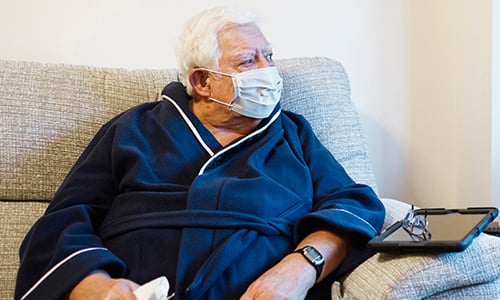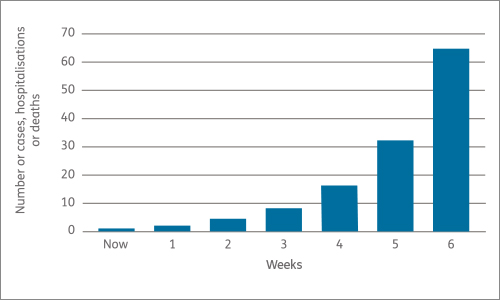With last week's temperatures soaring and the UK experiencing more extreme weather events than before, Age UK is thinking about the impact of climate change on older people's lives, and what we and older people can do to address the climate emergency.
Record breaking temperatures in the UK
Last week, temperatures in several places in the UK rose above 40°C for the first time. In Coningsby, Lincolnshire the temperature rose to 40.3°C, a whole 1.6°C higher than the previous highest recorded temperature in the UK. Lots of people have been drawing comparisons with the temperatures experienced in the UK in the summer of 1976, but although the summer that year was long, hot, and dry, the highest temperature recorded was 35.9°C, more than 4°C cooler than Tuesday’s high.
These high temperatures are dangerous for our health. Our body temperature, when we’re healthy, is around 37°C, and we need to keep it very close to that to stay well. In a heat wave, our bodies need to work hard to keep us cool enough, and this can be particularly challenging for older people and those who are more vulnerable because of their health, as well as for young children. Key tips are to stay out of the sun and to drink plenty of water, and Age UK has lots of advice on how to help your body stay cool in hot weather.
Climate change
The temperatures we saw last week, which have never been seen in the UK before, are a symptom of what scientists have been agreed for many years is the impact of human activities on the Earth’s climate. Since the Industrial Revolution we have been burning large quantities of fossil fuels, releasing more and more of carbon dioxide. Carbon dioxide in the atmosphere traps heat from the sun, so more carbon dioxide warms the planet and causes climate change.
Without substantial changes to reduce our carbon dioxide emissions climate, change will continue, and we will see extreme weather events – including heat waves and flooding – become more common than we are used to. The UK’s relatively mild climate will become harsher. Last year, Age UK spoke to Friends of the Earth, who gave us some practical steps we can all take against climate change. As well as the changes we can each make to the way we live our lives we need to make bigger changes as a society, and as a global community. For this reason, it’s important that we keep the climate emergency on the political agenda so that our politicians know they have our backing to stick to their climate commitments.
To help with this, Age UK is planning a programme of work on climate change. We’ll be working with older people to find out about their concerns about how our climate is changing and making sure we’re representing those to politicians and other key decision makers.
Keep in touch
To hear more from us later this year on our climate change work, and our other work on issues that affect older people, sign up to receive our campaigns emails.






